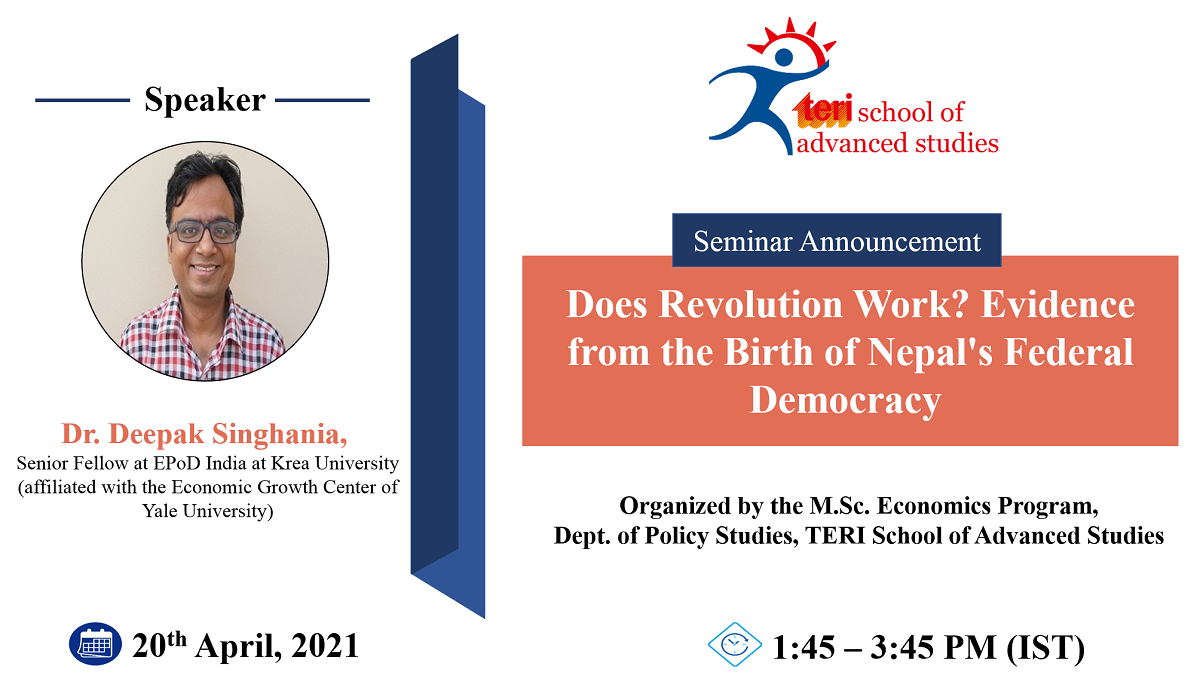
ANNOUNCEMENTS

Speaker: Dr Deepak Singhania, Senior Fellow, EPoD India at LEAD at Krea University
The political consequences of revolution are among the most important, but least understood, of all war impacts. Using a census of 3.68 million Nepalis (2.56 million of whom are of voting age) covering eleven districte, party nomination lists, electoral data, and party candidate selec- tion committee surveys, we report five key findings. First, the historically disadvantaged social group of Janajatis — who formed the backbone of the Maoist insurgent group - gained repre- sentation proportional to their population share. Second, all parties — including the Maoist party — positively select candidates on education. Third, educated and Jana,jati party selection committee members demonstrate less bias against Janajati candidates. Fourth, the Maoist party - which has the most diverse party selection committees and the most Janajati nominees provided the most Janajati tickets. Finally, using a close-election regression discontinuity de- sign, we find that electing more educated leaders causally improves earthquake reconstruction for all constituents. By contrast. electing lower caste politirians marginally increases benefits for co-caste members, but does not have broader impacts. Taken together, our results provide a nuanced picture of how rebel groups enabled an inclusive federal democracy in Nepal: they created a cadre of positively selected leaders from historically disadvantaged castes during the revolution. This broadening of the pool of qualified candidates for post-conflict politics, in turn, leads to improved policy outcomes.

Plot No. 10, Institutional Area, Vasant Kunj, New Delhi - 110 070, India.
Tel. +91 11 71800222 (25 lines).
Website : www.terisas.ac.in
Email id : registrar@terisas.ac.in
© Copyright © 2025, TERI SAS, All rights reserved.
Visitors No.: 47081718 Since 2023


